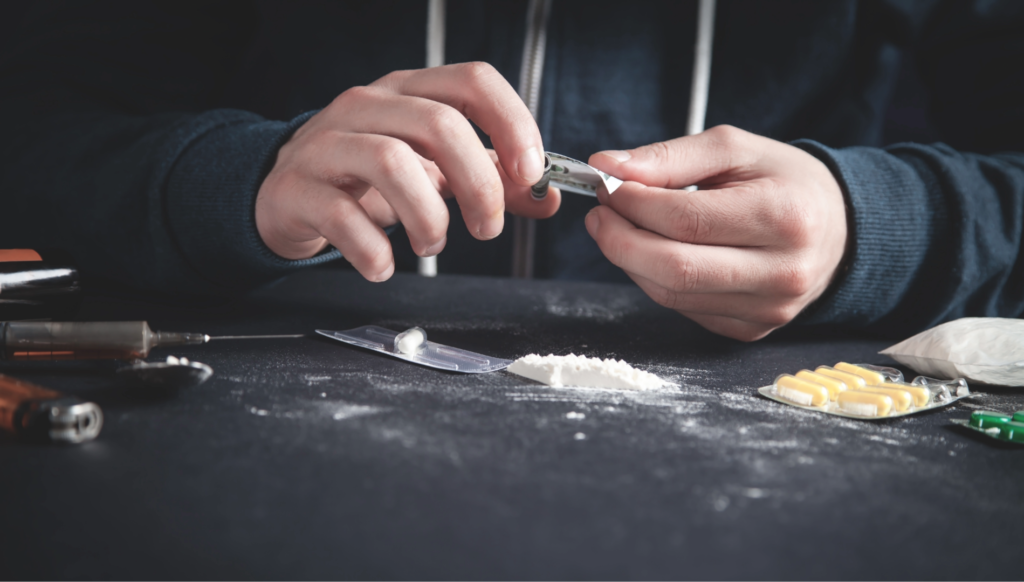Cocaine addiction is a beast that often hides in plain sight, preying on those who may seem outwardly successful, energetic, and in control. As someone who has faced the relentless grip of cocaine addiction firsthand, I want to shed light on this insidious affliction, not just to inform but to offer hope and understanding to those who might find themselves caught in its destructive web.
The Allure of the High
Cocaine, a powerful stimulant derived from the coca plant, offers a seductive promise of euphoria, boundless energy, and increased confidence. The drug’s impact on the brain is profound, flooding it with dopamine, the neurotransmitter responsible for pleasure and reward. For many, the initial experience is exhilarating—an escape from reality that seems too good to be true. But as with all things that offer immediate gratification, there’s a steep price to pay.
The Cycle of Addiction
What begins as an occasional indulgence can quickly spiral into dependency. The high from cocaine is fleeting, leaving users craving more as the effects wear off. This cycle of euphoria followed by a crash leads to repeated use, and gradually, addiction sets in. The brain, conditioned to expect the dopamine rush, becomes less responsive over time, prompting users to consume larger amounts to achieve the same effects. This is where the dangerous cycle of addiction truly begins.
Signs and Symptoms
Cocaine addiction manifests in various ways, affecting both physical and psychological health. Recognizing the signs can be crucial in seeking help:
- Physical Symptoms: Rapid heartbeat, dilated pupils, increased energy, and reduced appetite are common. Long-term use can lead to severe cardiovascular issues, nasal damage, and malnutrition.
- Behavioral Changes: Increased secrecy, erratic behavior, financial difficulties, and strained relationships often accompany addiction. Users might become increasingly isolated or engage in risky behaviors to obtain the drug.
- Psychological Effects: Anxiety, paranoia, and mood swings are frequent, and prolonged use can lead to severe mental health issues, including hallucinations and delusions.
The Struggle Within
Addiction is not just a physical battle but an emotional and psychological one as well. The struggle with self-worth, guilt, and shame often compounds the difficulty of breaking free from addiction. Many individuals feel trapped in a cycle of self-loathing and self-destruction, believing they are beyond redemption.
The internal dialogue of someone struggling with addiction can be a cruel reflection of their pain:
“Why can’t I stop? I’m weak. I’m letting everyone down. I don’t deserve to be better.”
These thoughts are a manifestation of the disease’s hold, but they are not the truth. Recognizing this is a crucial step in the journey toward recovery.
Seeking Help
Breaking free from cocaine addiction is a formidable challenge, but it is not insurmountable. The path to recovery often involves several steps:
- Acknowledging the Problem: Acceptance is the first step. Understanding that addiction is a disease, not a personal failing, is essential.
- Professional Help: Therapy and counseling are critical in addressing the underlying issues contributing to addiction. Cognitive-behavioral therapy (CBT) and other therapeutic approaches can help reshape thought patterns and coping mechanisms.
- Support Systems: Surrounding oneself with a supportive network of family, friends, and support groups can provide the encouragement and accountability needed for recovery.
- Lifestyle Changes: Adopting healthy habits, such as regular exercise, a balanced diet, and engaging in fulfilling activities, can support long-term recovery and help manage stress.
- Avoiding Triggers: Identifying and avoiding situations or environments that trigger cravings is crucial in maintaining sobriety.
Moving Forward
Recovering from cocaine addiction is a journey marked by setbacks and triumphs. It’s a process of rediscovering oneself and rebuilding a life free from the chains of addiction. Each day sober is a victory, and every step taken towards recovery is a testament to personal strength and resilience.
For those struggling with cocaine addiction, remember this: the road to recovery is difficult, but it is also paved with hope. Seeking help and making the choice to change can lead to a brighter, healthier future. The path may be long and arduous, but with determination, support, and the right resources, a fulfilling life beyond addiction is not only possible but within reach.
If you or someone you know is struggling with addiction, reaching out to a professional or support group can be the first step towards a new beginning. Your story is not over—it’s just beginning.
Here are some resources for cocaine addiction support and information:
- National Institute on Drug Abuse (NIDA): Cocaine Research – Provides information on cocaine’s effects, treatment options, and research updates.
- Substance Abuse and Mental Health Services Administration (SAMHSA): Find Treatment – A tool to locate local treatment facilities and services for substance abuse.
- Narconon: Cocaine Addiction – Offers information on the signs of cocaine addiction and available treatments.
- Addiction Center: Cocaine Addiction Treatment – Provides resources on treatment options and recovery stories.
- SMART Recovery: Cocaine Addiction Support – Offers self-help groups and online support for addiction recovery.
- National Helpline for Substance Abuse: 1-800-662-HELP (4357) – A confidential and free helpline for finding resources and support for substance abuse.
